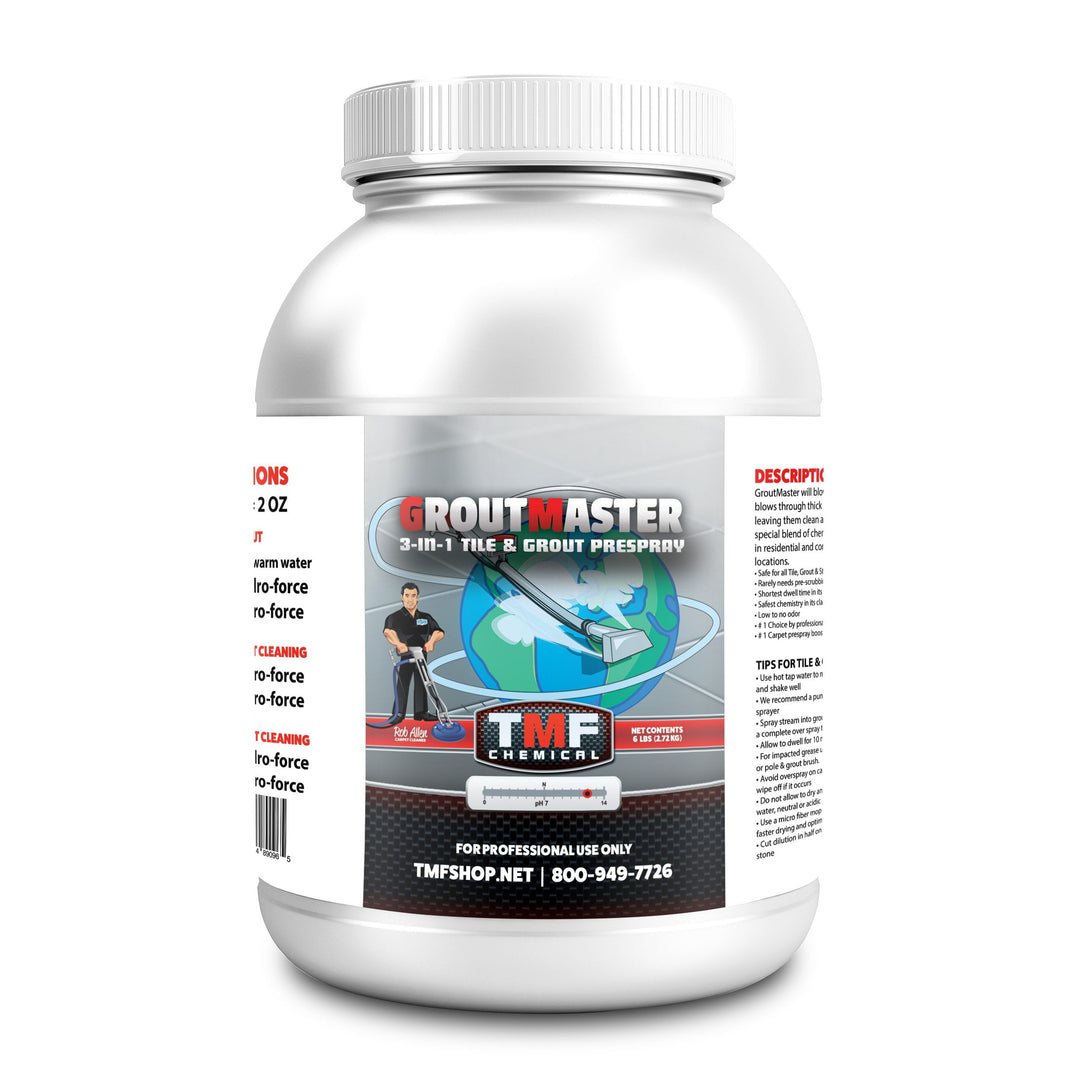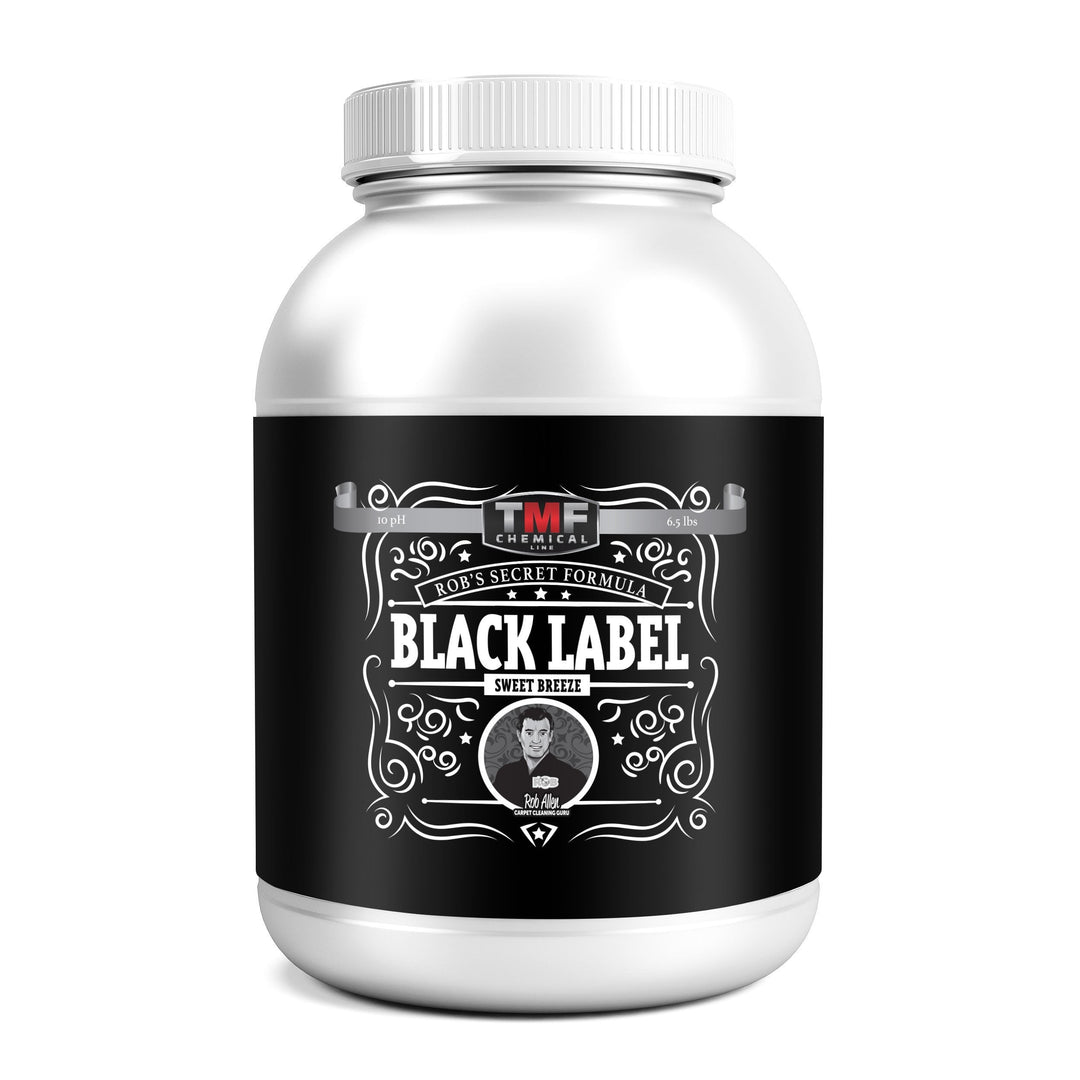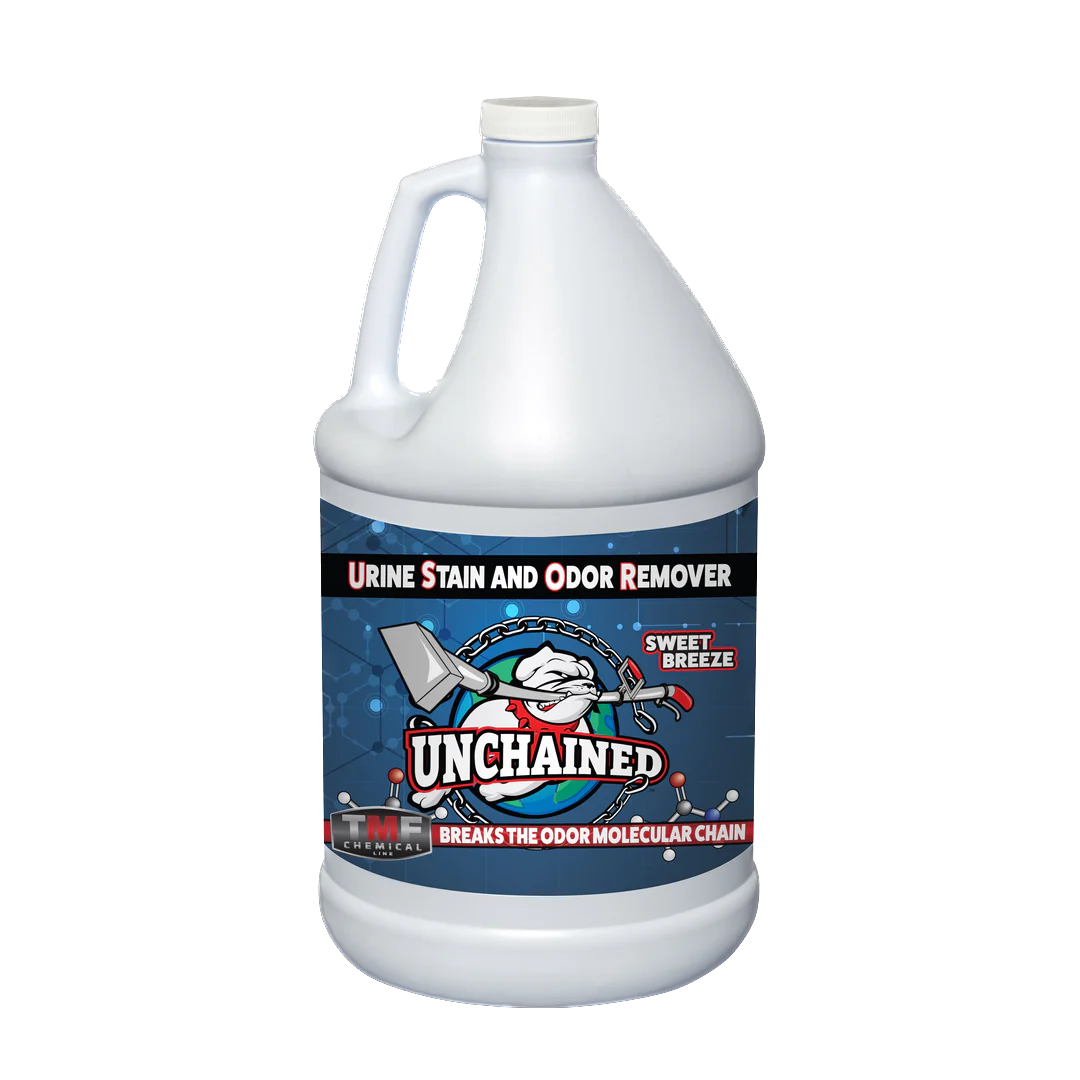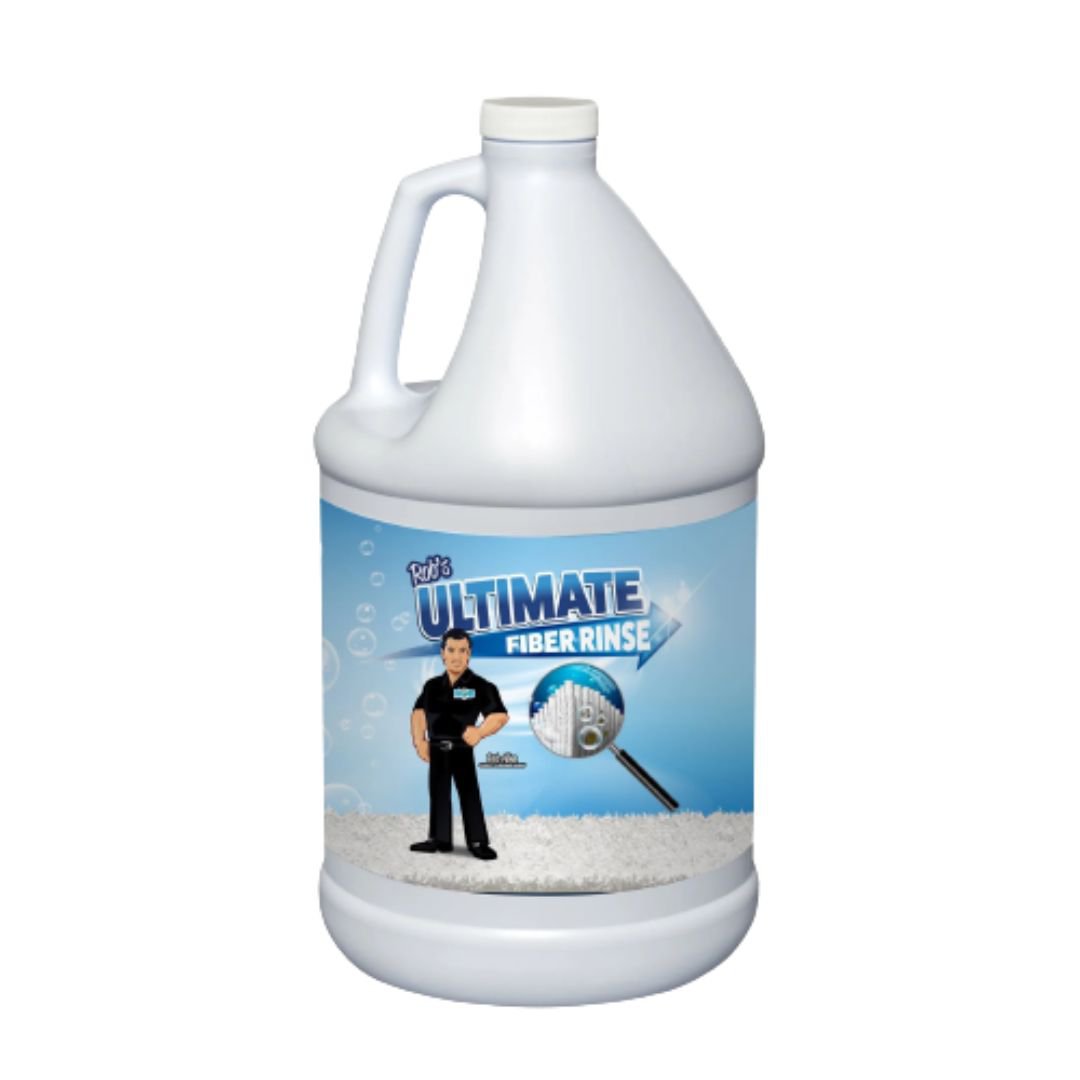Best Tile Cleaner Chemical for Restaurants
A restaurant is usually abuzz with activity, people, and delicious food and beverages being ushered around the space. While a busy restaurant is good, there are a lot of bacteria and spills that very quickly mess up the floor.
To stay on top of the maintenance of restaurant floors, you need the best tile cleaner chemical for restaurants. It is always best to go for professional cleaning chemicals, as these work most effectively without damaging the tiles.
This article guides you on what to consider when choosing the best tile cleaner, and how to clean restaurant tiles without making the floors slippery.
What this article covers:
- Best Tile Cleaner Chemicals for Restaurants
- What to Consider When Choosing the Best Tile Cleaner
- How to Keep Tile Grout Looking Good
- How to Keep Your Kitchen Slip-Free and Safe
- Best Tile Cleaner Chemical for Restaurants (FAQs)
Best Tile Cleaner Chemicals for Restaurants
Groutmaster Tile and Grout Cleaner Prespray
A restaurant needs to stay spotlessly clean to maintain the necessary health and hygiene standards, which means that the tiling in a restaurant space must be cleaned thoroughly. Our Groutmaster Tile and Grout Cleaner makes this easy.
Based on our experience this prespray solution is perfect for use on tiles, and it serves a dual function of cleaning the tile surface and the grout between the tiles. This saves you from sourcing two different products for your cleaning.
Why It’s Great
- Can be used with floor-cleaning equipment
- Safe to use in kitchen and dining spaces
- Cleans both tiles and grout
Who It’s Right For
- Restaurant cleaning services
- Fans of products with dual functions
Kick Acid For Grout Pack
A lot happens in a busy restaurant that can contribute to mess and dirt. This can be food and drink spills, oil splatters, steam moisture, and more. If you are struggling to remove a few areas of stubborn dirt, then our Kick Acid For Grout Pack is the cleaning savior that you are looking for.
This product works incredibly well on surfaces with dirt on tiles or in grout that is difficult to remove. According to our research, it is formulated to be used in areas prone to moisture build-up and issues that stem from this, such as mold, algae, or rust.
Why It’s Great
- Cleans stubborn dirt and grime
- Used for both tile and grout
- Biodegradable
Who It’s Right For
- Those deep-cleaning restaurant tiles
- Those struggling to shift tough stains
Rave Spotter
Restaurants should be cleaned regularly to maintain tidiness and hygiene, but from time to time you may have to deal with a small spill or stain that occurs unexpectedly. For this, we recommend using our Rave Spotter cleaning product.
This solution is made for spot removal, so it is sprayed onto a stained area, left to settle in and dissolve the dirt, and then you can clean it away with ease.
Why It’s Great
- Safe for use on tiles
- Targets smaller areas
Who It’s Right For
- Those wanting a quick fix for small stains
What to Consider When Choosing the Best Tile Cleaner
Type of Tile
There are many different types of tiles, each without their textures and sensitivities. This means that you need to pick your tile cleaner wisely so that it is suitable for the type of tiles that you are cleaning.
If you buy cleaning products that are formatted especially for certain types of tiles, this will likely be safer to use. If opting for a general cleaning chemical, make sure that it is not too harsh.
Our experience shows that when cleaning more delicate tiles, like acrylic, you may want to choose a cleaner with no abrasive properties that will damage the tiles.
Purpose of Cleaner
When choosing your cleaning chemical, pick one that suits your particular cleaning needs.
When cleaning floor tiles in general living spaces, you can use a normal tile cleaner. If you are tackling tiles in a bathroom, or near a sink, you may need a stronger cleaner for mold and rust build-up.
If need be, look out for products that have more than one purpose. You often get cleaning chemicals that clean both the tile surface and the tile grout, which is highly convenient. If you need a cleaner that targets just the grout, these are available, too.
Ingredients
While you need stronger chemicals to effectively clean out dirt and stains, if they have toxic ingredients they can strip away the surface of the tiles and cause damage.
Whether you are looking for floor cleaners or chemicals to clean surfaces and countertops in restaurants, it’s best to look for cleaners that are strong enough to clean but do not contain toxic ingredients. You also want to avoid cleaning chemicals with high levels of bleach, as this might cause fading or discoloration.
Based on our research, toxic ingredients can also be a health hazard. If you are looking to clean an enclosed space, you do not want to have harmful fumes in the area which can endanger yourself, or others in the space.
Application
The particular application method for a cleaning chemical should be suited to the type of tiles you are cleaning, the size of the area, the cleaning tools you have available, and more.
Some cleaning chemicals work well with floor cleaning machines, which are ideal for large spaces and heavy-duty cleaning.
If you are looking to spot clean or clean a small space, then powder or gel products can work just as well. Some products focus on targeted stain removal.
You may also look to use a targeted cleaning product for grout, as this requires a more hands-on cleaning approach to get between the tiles. Any of these chemicals can also be used for cleaning ceiling tiles in a restaurant.
How to Keep Tile Grout Looking Good
Clear Debris
First, remove any loose dirt on the tiles before you apply any chemicals. Beginning the cleaning process when there is dirt on the tiles will make it difficult to get the grout clean.
Use a broom or a vacuum to clear out the loose debris from the floor. Be sure to get between the tiles, in the grout, when cleaning.
Apply Grout Cleaner
Next, you will need to apply a strong grout cleaner.
Our Kick Acid For Grout Pack is the best product to use for grout. It is the product you turn to for stains that no other product can remove. It’s one of the most appropriate chemical solutions for cleaning a food industry floor.
Its acidic nature means that it can cut through any dirt, grime, mold, mildew, etc. This makes it ideal for use in high moisture areas, or areas where there is a lot of dirt build-up.
With the high amounts of food and liquid spill, plus the water and steam in the area, it’s a perfect match for restaurant cleaning.
Combine the product using the instructions on the packaging, and then apply liberally to the tile grout.
Clean Grout
Depending on the size of the tiled area, you can either use a large scrubbing floor machine or a smaller brush. Be sure to focus the cleaning in between the tiles so that you remove any dirt embedded in the grout.
Rinse Out The Cleaner
Next, once the grout is sufficiently clean, remove any cleaning chemicals from the tiled area. Leaving this on can cause damage or deterioration.
You can either use a mop, cloth, or cleaning tool for this step, depending on the size of the area to be rinsed.
Dry Grout
Leave the tiled area to dry as long as needed, before walking on the tiles.
How to Keep Your Kitchen Slip-Free and Safe
Rinse Out Cleaners
A common mistake you can make when cleaning, which often leads to slippery tiles, is failing to remove commercial kitchen cleaning chemical remnants from the floor. This will leave behind a greasy layer on the floor which can be dangerous.
Once a floor is clean, you need to rinse out the tiles to remove any of the product that remains. Use plain water, plus a mop or cleaning tool, to wash this out effectively.
Apply as little water as possible in this step so that you do not flood the tiles, because this can also cause damage to the grout.
Ensure the Floor is Dry
It is important to allow the floor to dry fully after cleaning. This may take longer if it’s a large area or a non-ventilated room.
If there are windows around, you can crack these open to speed up the drying process. For areas where there are no windows, you can switch on a fan or two and this should hasten the drying.
A restaurant is a non-stop activity, so you may not be able to stop service while the floor is drying. If this is the case, you need to put up caution signs to let employees and patrons know that they should avoid walking in that area. This prevents a nasty accident, for which the restaurant will be held liable.
Put Down Mats
In a restaurant, a slippery floor is not just caused by cleaning chemicals or water - it can also be the frequent grease and oil spills, especially around the kitchen where the cooking takes place.
While cleaning regularly will remove these stains, it might not be possible to do this during a busy service time. To ensure your staff is still kept safe when walking through the kitchen, you can throw down a few rubber mats or rugs that provide grip and prevent slippage.
Conclusion
A restaurant is a place with lots of food and drinks around, which often leads to just as many spills and stains. But it is also a place where hygiene should be kept to an optimal level. This means that all cleaners need to be of the highest quality.
The best tile cleaners that you can use in restaurants are generally professional cleaning chemicals, as these are formulated for strong and effective cleaning with minimal damage to the tiles.
Best Tile Cleaner Chemical for Restaurants (FAQs)
What is the best way to clean restaurant floors?
Restaurant floors should be cleaned thoroughly and regularly to maintain a good quality of hygiene. To get the floors spotlessly clean, you should use a strong and effective cleaning chemical together with hot water and a reliable floor cleaning tool.
How do you clean restaurant floor grout?
With the frequency of food and drink spills, together with cooking grease and oil splatters, there is usually a big build-up of dirt in the tile grout at restaurants.
This can be cleaned using a strong grout-cleaning chemical, and a cleaning brush. Gently scrubbing the chemical into the grout loosens the dirt, and makes it easier to clear out.
Did you find our blog helpful? Then consider checking other guides:
- Commercial Carpet Cleaner Solution
- Best Commercial Carpet Extractor Solution
- Best Carpet Cleaning Solution for Pet Odor Professional
- What Is the Best Chemical to Use When Clean Carpet with a Hot Water Extractor?
- Commercial Window Cleaning Solution
- Commercial Pressure Washing Chemicals
- Commercial Cleaning Solutions
- Commercial Rust Removal Solution
- Commercial Chemicals to Clean Grease
- How to Clean Polished Porcelain Tile
- How to Clean Unglazed Porcelain Tile
- How to Clean Porcelain Tile That Looks Like Wood
- Best Product to Clean Porcelain Tile
- How to Remove Wax from Porcelain Tiles
- How to Clean Textured Ceramic Tile Floors












